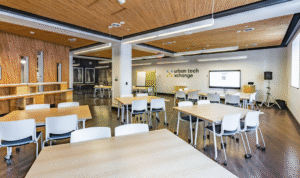
- Kim Kisner
- Business
- 11/12/2024
Using AI to Optimize Waste Collection
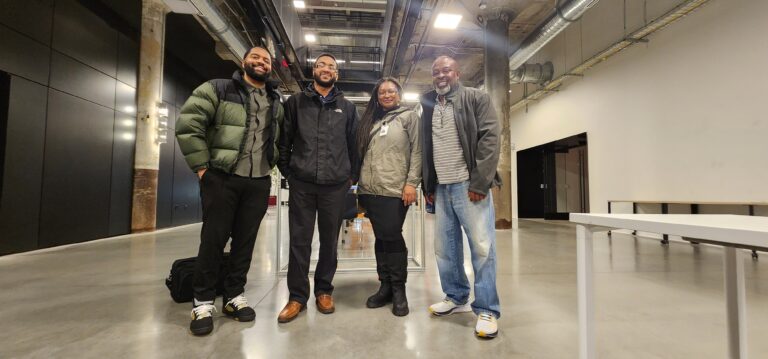
Ecosphere Organics, cofounded by Brittanie Dabney, is focused on innovating within the sustainable biorefining industry. By leveraging advanced technologies, including artificial intelligence, the company aims to address critical challenges in resource recovery and material processing. The goal is to simplify the biorefining process, enabling companies to focus on developing sustainable end products rather than managing complex material recovery operations. Ecosphere is finalizing logistics and has run pilot programs, working toward launching with clients.
SBN Detroit interviewed Dabney to learn more about the mission and technology behind Ecosphere Organics, the challenges it faces, and the opportunities she sees within the industry.
Q: What is the driving force behind Ecosphere Organics, and what key problems does it aim to address?
A: Our driving force is the urgent need to reduce the environmental impact of food and organic waste. Our goal is to help companies transition toward sustainable production practices by diverting valuable food waste from landfills and giving it a new purpose. Today, food waste is often simply discarded or composted, but there are many untapped opportunities to extract value from it.
By refining food waste into components that can be used in industries like textiles, packaging, and bio-based chemicals, we can give companies the tools to be more sustainable while contributing to a circular economy.
Q: What do these applications look like?
A: Today, we focus primarily on pre-consumer waste, meaning clean food waste from sources like restaurant kitchens. This includes citrus peels, eggshells, coffee grounds—essentially, anything that hasn’t been contaminated by being on someone’s plate. By working with clean streams of waste, we can efficiently sort and sterilize the materials, which makes them ideal for biorefining.
Take banana peels, for example. We can extract natural pigments from these peels, which can be used as dyes in the textile industry. Fibers from the banana stems can serve as fillers to reduce plastic content in consumer goods, and food-based fibers are also being explored as eco-friendly options in packaging. Right now, we’re focusing on converting food waste into powders that can be further refined for green chemicals, substrates for fermentation processes, or even bio-based fertilizers. Our approach is about seeing the full lifecycle of organic waste and giving it renewed purpose.
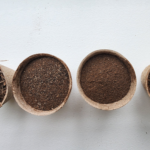
Q: What work have you done to date?
A: We officially launched in March 2024, and our early work has been focused on refining recipes for our material blends, bioplastics, and processes to scale. Right now, we’re working on logistics – figuring out how to streamline the collection of food waste suitable for urban areas, how to efficiently transport it to our location, and how to make it as easy as possible for food suppliers to collaborate with us.
To that end we will be participating in a pilot program with Orange Sparkle Ball and Intermode, where there will be an autonomous robot to collect waste in Corktown and transport it to Ecosphere. By reducing reliance on diesel fuel trucks, this approach lowers emissions and makes the entire lifecycle of our raw materials more sustainable and cost-effective. Collecting waste locally not only supports a more efficient supply chain but also allows more businesses to join the bioeconomy in a sustainable way.
Q: How do you leverage AI and how does this technology optimize the process?
A: The biggest opportunity lies in scalability and efficiency. Advanced technology and AI will allow us to optimize everything from waste collection and processing to customized material selection. With these tools, we can better predict waste volumes, design adaptable systems, and improve the quality of the materials produced. AI in biorefining enables smarter, more sustainable processes that can be replicated across various regions and industries, supporting a broader shift toward a circular economy.
AI also plays a role in educating companies. We can recommend specific applications for raw materials, such as high-quality pigments, bio-based fertilizers, or even bioplastics. AI will help predict material demand and recovery rates, which allows us to guide companies toward the best ways to integrate sustainable materials into their products. Our platform will also serve as a resource for companies involved in R&D or prototyping, providing valuable data on material properties and potential applications.
Q: What are some of the biggest technological challenges you face?
A: One major challenge is creating processing systems flexible enough to handle diverse organic waste streams. For example, different types of citrus peels—like oranges, lemons, and limes—often need to be manually separated before continuing the refining process. Designing a system that can automatically adjust to these varying feedstocks is complex, but we’re actively working on solutions.
Another challenge is the inherent variability in organic waste itself. Restaurants source ingredients from different locations, resulting in diverse nutrient profiles. Designing systems that can consistently process this range of materials while maintaining the quality of the end product is a technical hurdle.
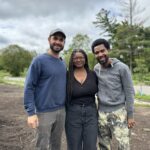
Finally, ensuring the quality of our end materials is crucial. Integrating data into our platform to monitor and adapt our systems will be essential to maintaining the high standard we are aiming for across all processing operations.
Q: Are there specific partnerships or collaborations in Southeast Michigan that you’re working on?
A: We’ve built partnerships with local restaurants, food service providers, urban farms and composters such as Sanctuary Farms. We also collaborate with other tech providers like Orange Sparkle Ball for waste collection solutions. Additionally, we’ve partnered with educational institutions and nonprofits like Make Food Not Waste, Black Tech Saturdays, Wayne State University, and the College for Creative Studies. For example, during Detroit’s Month of Design, we hosted “Waste to Wonder,” a community-centered and educational event where artists used pigments derived from food waste to create art.
We’re also hoping to work more closely with the City of Detroit and other municipalities, with the goal of integrating our biorefining systems into broader sustainability strategies.
Q: What obstacles do companies face in adopting sustainable biorefining, and how do you help overcome them?
A: One major obstacle is the perception that sustainable practices are prohibitively expensive or difficult to implement. While there might be upfront costs, the long-term savings and environmental benefits outweigh those initial expenses. Many companies also worry that biorefining could disrupt their operations or require significant investments to get started. We address this by offering a streamlined solution that minimizes operational disruptions and adds value through new revenue streams.
Another obstacle is the lack of awareness surrounding available technologies. This is a relatively new industry, so education is key. Through education and partnerships, we aim to close this knowledge gap and make sustainable options more accessible.
Q: Looking to the future, how do you see technology shaping sustainability efforts in Southeast Michigan and beyond?
A: Technology will be a driving force in the shift to sustainable practices. AI and innovative processing techniques will make it easier for companies to adopt circular economy models. Soon, regulations will likely push companies to find alternatives to landfills, making sustainable waste processing solutions essential.
We are excited to be part of that transformation here in Michigan. I think we are contributing to a model that can be replicated worldwide.
Be sure to subscribe to our newsletter for regular updates on sustainable business practices in and around Detroit.
Kim Kisner
- All
- Business
- Community
- Education
- Events

Eastern Market Partnership, in collaboration with the City of Detroit’s Office of Sustainability Urban Agriculture Division, has announced $240,000 in grant funding to support Detroit-based farmers and farmer collectives. The grants will advance food access, climate education, sustainable land use, and economic opportunity, with priority given to Black- and Indigenous-led farms, youth-led initiatives, and projects rooted in historically disinvested neighborhoods. The recipients – ranging from cooperatives and community...

Citizen Robotics is a Detroit-based nonprofit that advances the use of robotics and digital manufacturing in residential construction, focusing on improving productivity, sustainability, and long-term affordability. Best known for its early work in 3D-printed housing, it explores how alternative construction methods and new financial models can reduce material waste, lower lifetime operating costs, and enhance the resilience of homes. SBN Detroit interviewed Tom Woodman, founder and president of...
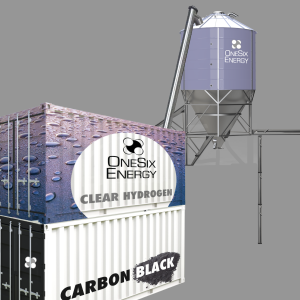
Detroit-based OneSix Energy is a clean-energy technology company focused on advancing a lower-carbon approach to hydrogen production. Headquartered at Newlab in Detroit, the startup is developing a proprietary methane pyrolysis system designed to produce hydrogen without carbon dioxide emissions, while also generating solid carbon as a co-product. SBN Detroit interviewed with cofounder Stefan Sysko about the company’s origins, its approach to hydrogen production, and why Detroit is positioned...






